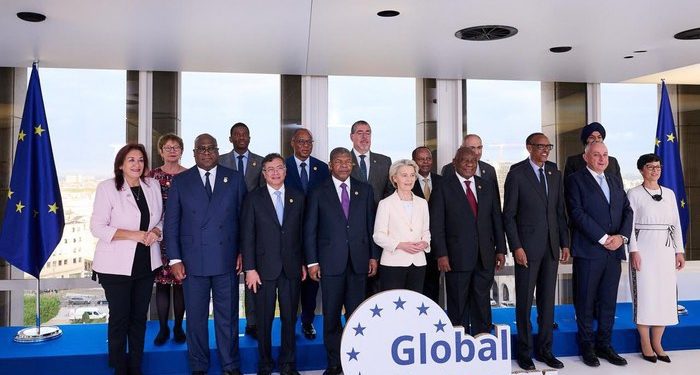Less than ten years ago, I had a conversation with the ambassador of a European country in Rwanda. We were discussing Europe’s declining influence in Africa. I am re-visiting our conversation because a once important actor in global affairs has been reduced to a shadow of its former self, so much so that some editors have only shied away from using the title “When Europe Became Africa,” a reference to the latter’s subordinate status on the international stage. In this article I focus only on how Europe might rediscover its lost glory in Africa.
As with all matters analytical, my use of “glory” here is a matter of perspective.
Is Europe still relevant?
Europe faces three challenges. The first is the loss of its soft power, its ability to persuade and win hearts in Africa with the idea that it is a continent of superior values. Africans, like other people around the world have seen through the hypocrisy and double standards behind the push for human rights and democracy, exposing the geopolitical interests and exploitative motives that underlie Europe’s selective and self-serving advocacy for otherwise noble causes.
The second is that the war between Russia and Ukraine has made a once-overlooked reality unmistakable: Europe itself is subservient to another great power, the United States. At times it acts as though it has no independent interests, failing both to resolve a conflict in its own backyard and to present a united front on how to deal with it. So, while the EU bloc may still be wealthier than Africa, Africans have come to realise that Europe is not as powerful as they once believed. And its voice, just like Africa’s, can be ignored.
Finally, and perhaps most importantly, Europe’s foreign policy has failed to evolve, despite the loss of its soft power and prestige. Europe is accustomed to dealing with subservient African countries; it does not know how to relate to confident ones. Its diplomacy functions on African deference. Its relations with African states are “best” when those states are negligent or derelict, behaving as though they have no interests of their own beyond the pursuit of Europe’s approval. Quite frankly, Euro–African relations thrive on Africa’s treasonous posture, for which the term neocolonialism was coined.
Times have changed
New developments across the African continent are now on a collision course with Europe’s traditional foreign policy.
Africans, especially the youth, are increasingly rejecting subservient leaders. They are rejecting the humiliation that the generation before them came to accept as natural in their dealings with the outside world. In fact, the only reason they have not yet ousted incumbent regimes that continue to pander to Western interests and seek Western approval is because the alternative, opposition groups, are often as treasonous as the regimes — the right word indeed for such — in power. Consequently, political movements attuned to the sensibilities of the youth are quickly redefining how they engage with external partners. In other words, there is a new breed of political elite seeking to represent Africans.
Furthermore, even those elites that are already in power, or those who are acquiring it, have smelled the coffee. States that reject subservience are no longer outliers; defiance is becoming the norm rather than the exception. However, Europe’s foreign policy is struggling to adjust to these shifts. There are at least two reasons for this.
The first is that entrenched mindsets among Europe’s political elite find it difficult to engage with confident African leaders who articulate their own countries’ interests and priorities on the global stage. In other words, the kind of introspection the European elite needs to engage in will take time to happen, as will nurturing of a critical mass that are capable of recovering meaningful influence in Africa. That influence will be different in nature from that which their forebears have sought to wield, but no less effective in advancing European interests in a transformed global order.
The second reason is Europe’s persistent tendency to view the world in zero-sum terms, where hierarchy is seen as essential. If Europe does not subordinate Africa, who will it subordinate in the imagined rank of human societies? The answer is no one. Despite Africa’s rejection of these outdated hierarchies, Europe is delaying the mindset shift needed to stay relevant, but at a ruinous cost to itself.
When Emmanuel Macron came to power in France, he understood this challenge well. An African leader offered him advice:
“Look, you are young,” he said. “You do not carry the baggage of the generation before you. Why don’t you forge a fresh start between Europeans and Africans?”
The advice was to use his position to inspire a new movement in Europe, one that would engage Africans on mutually respectful terms. Macron tried. Anyone who pays attention knows how he initiated youth town halls for open and honest reflection. But the French establishment grew uneasy, seeing Macron’s initiative as humiliating to Europe, and to France in particular. Fighting for his political survival, Macron quickly changed course and steered the ship back to familiar, comfortable waters.
There is no other way
I recalled my conversation with the ambassador when President Kagame urged Europeans to get out of their own way at a recent Global Gateway event in Brussels.
“Cooperation only works when it is built on the right foundation,” Kagame said.
“We are here to discuss partnerships; however, the term seems to mean different things to people. For some, it is about giving instructions and setting conditions; for others, it means complying. Africa’s experience shows that this approach does not deliver the transformation we need. A good partnership does not create dependency; it creates value. If you want to work with Africa, a true and lasting partnership must be equal, with shared risk and reward,” he added.
Europe’s history in Africa is a heavy burden to carry, as Macron quickly found out. Yet if Europe wishes to retain influence on the continent, it must engage with a different kind of African, the kind it has long been accustomed to sabotaging or assassinating.
Perhaps Africa too bears some responsibility for the persistence of this attitude. For while President Kagame was urging a radical change in Europe’s approach, his Congolese counterpart was doing the opposite: inviting interference, calling for supervision, and comforting Europe in the mistaken belief that it could still hold the stick over defiant Africans refusing to follow an outdated script.
So, in the end, while Europe must engage in some soul searching, so must Africa.




